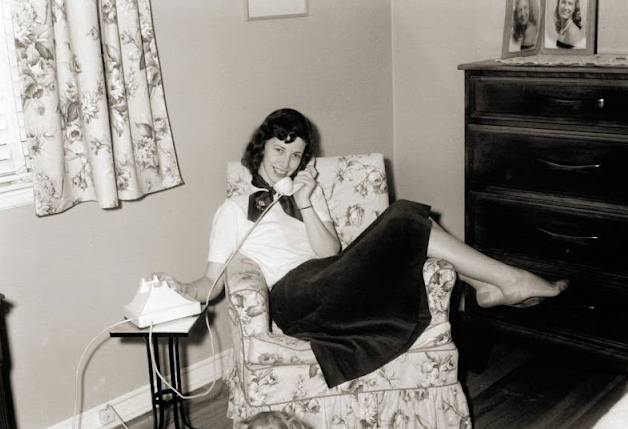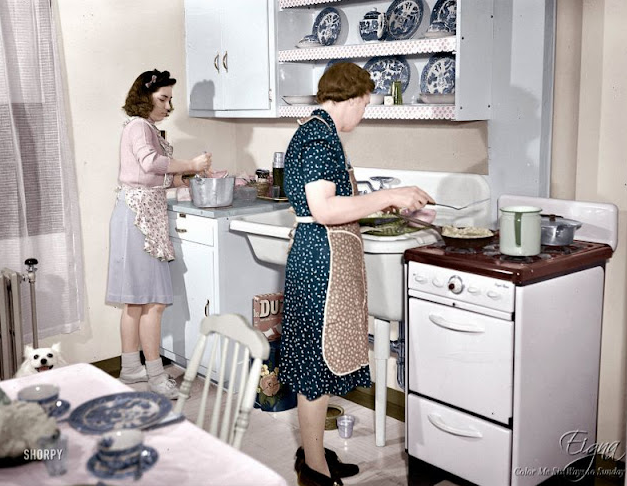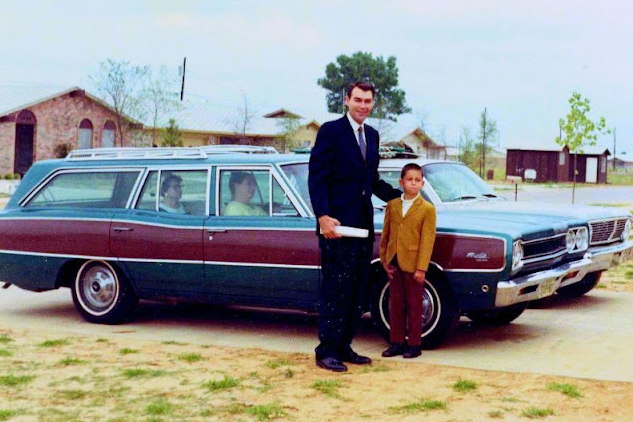
The sun rises on the darkened Manhattan skyline during a citywide blackout. 1977.
The 1977 blackout that hit New York was a crisis that came amidst a sweltering heatwave, a financial downturn, rising poverty and inequality, and an atmosphere of gloom that had already settled on the city.
The 25-hour outage began around 9:30 p.m. on July 13th, after a bolt of lightning struck an electrical substation in Westchester. Not long after, another lightning strike took out two more power lines, and when the Ravenswood 3 power plant in Queens went down, the city fell dark.
Opportunistic thieves grabbed whatever they could get their hands on, from luxury cars to sink stoppers and clothespins, according to the New York Post. The sweltering streets became a battleground, where, per the Post, “even the looters were being mugged.”
Some pointed to the financial crisis as a root cause of the disorder; others noted the hot July weather, as the East Coast was in the middle of a brutal heatwave.
Still, others pointed out that the 1977 blackout came after businesses had closed and their owners had gone home. The 1977 looters continued their activities into the daylight hours, with police on alert.
Looting and vandalism were widespread, hitting 31 neighborhoods. Possibly the hardest hit were Crown Heights, where 75 stores on a five-block stretch were looted, and Bushwick, where arson was rampant, with some 25 fires still burning the next morning.
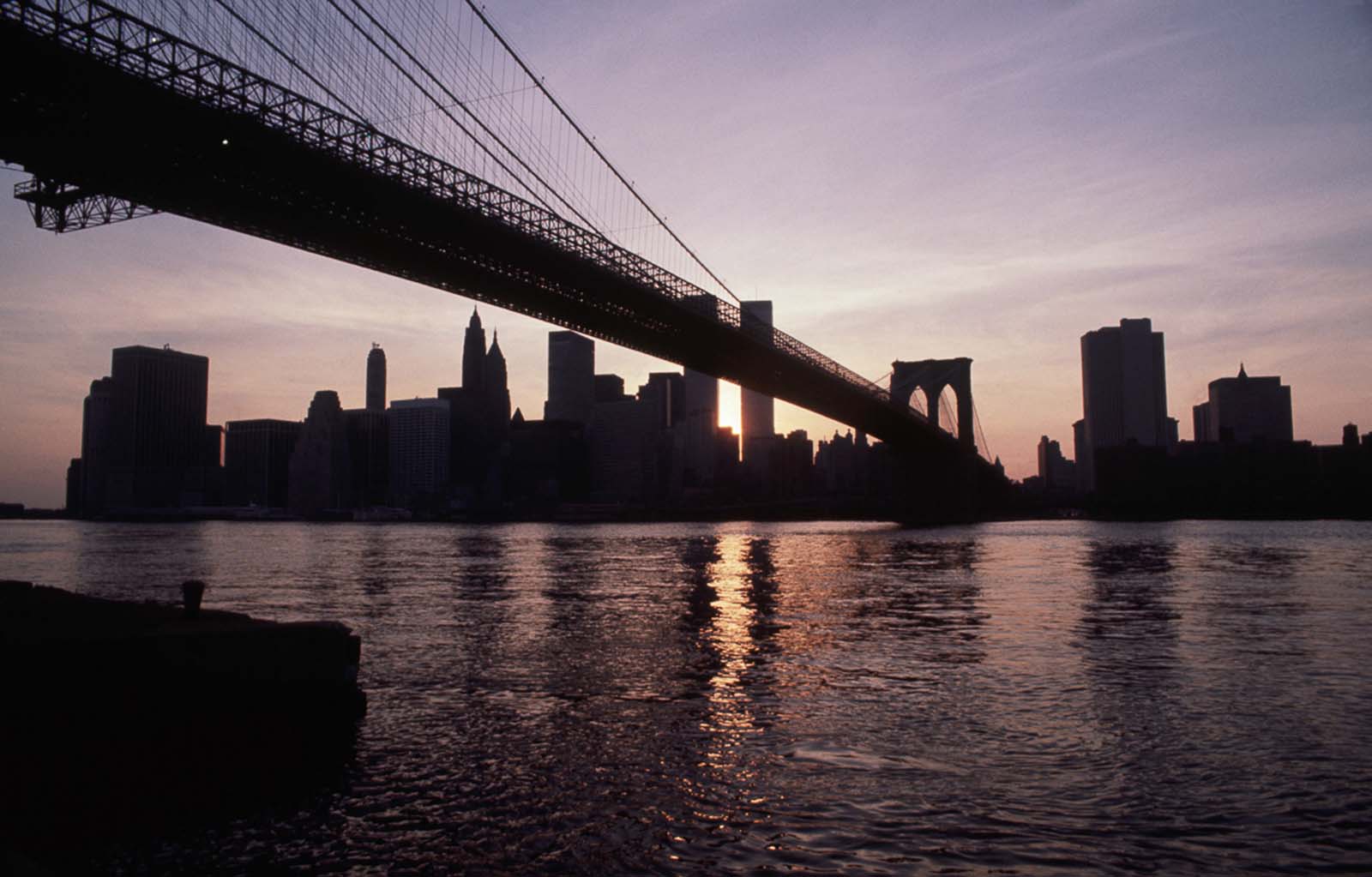
The Brooklyn Bridge and skyline of lower Manhattan remain dark as the sun sets.
At one point, two blocks of Broadway, which separates Bushwick from Bedford-Stuyvesant in Brooklyn, were on fire. Thirty-five blocks of Broadway were destroyed: 134 stores looted, 45 of them set ablaze. Thieves stole 50 new Pontiacs from a Bronx car dealership.
In Brooklyn, youths were seen backing up cars to targeted stores, tying ropes around the stores’ grates, and using their cars to pull the grates away before looting the store. While 550 police officers were injured in the mayhem, 4,500 looters were arrested.
Power was slowly restored over the next day, with the entire city online by 10:39 p.m. In all, 1,616 stores were damaged in looting and rioting. A total of 1,037 fires were responded to, including 14 multiple-alarm fires. In the largest mass arrest in city history, 3,776 people were arrested.
Many had to be stuffed into overcrowded cells, precinct basements, and other makeshift holding pens. A congressional study estimated that the cost of damages amounted to a little over $300 million (equivalent to $1.2 billion in 2017).
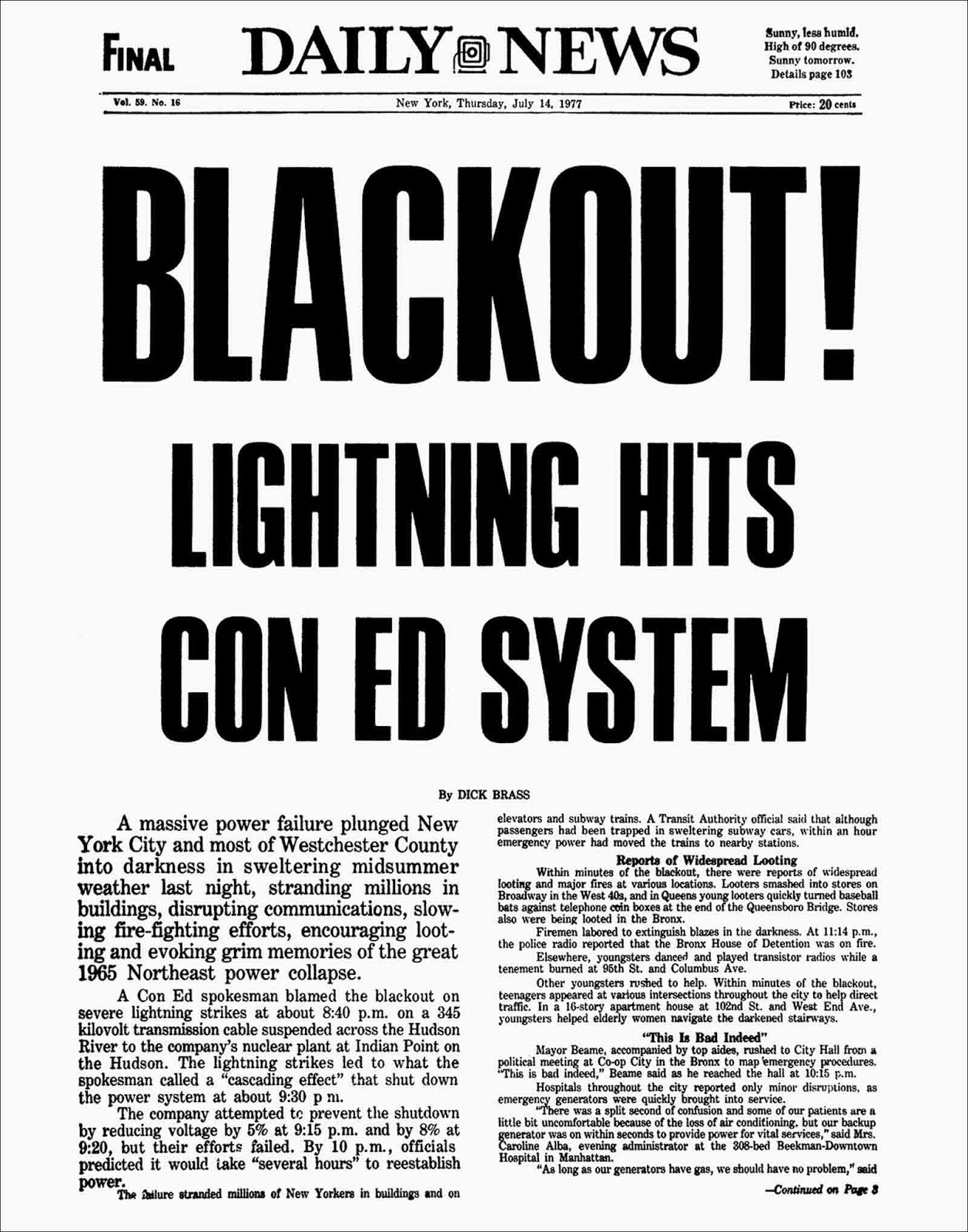
The Daily News front page.

A restaurant owner updates the specials of the day during the blackout.

People playing a game of cards by candle light during the New York blackout.
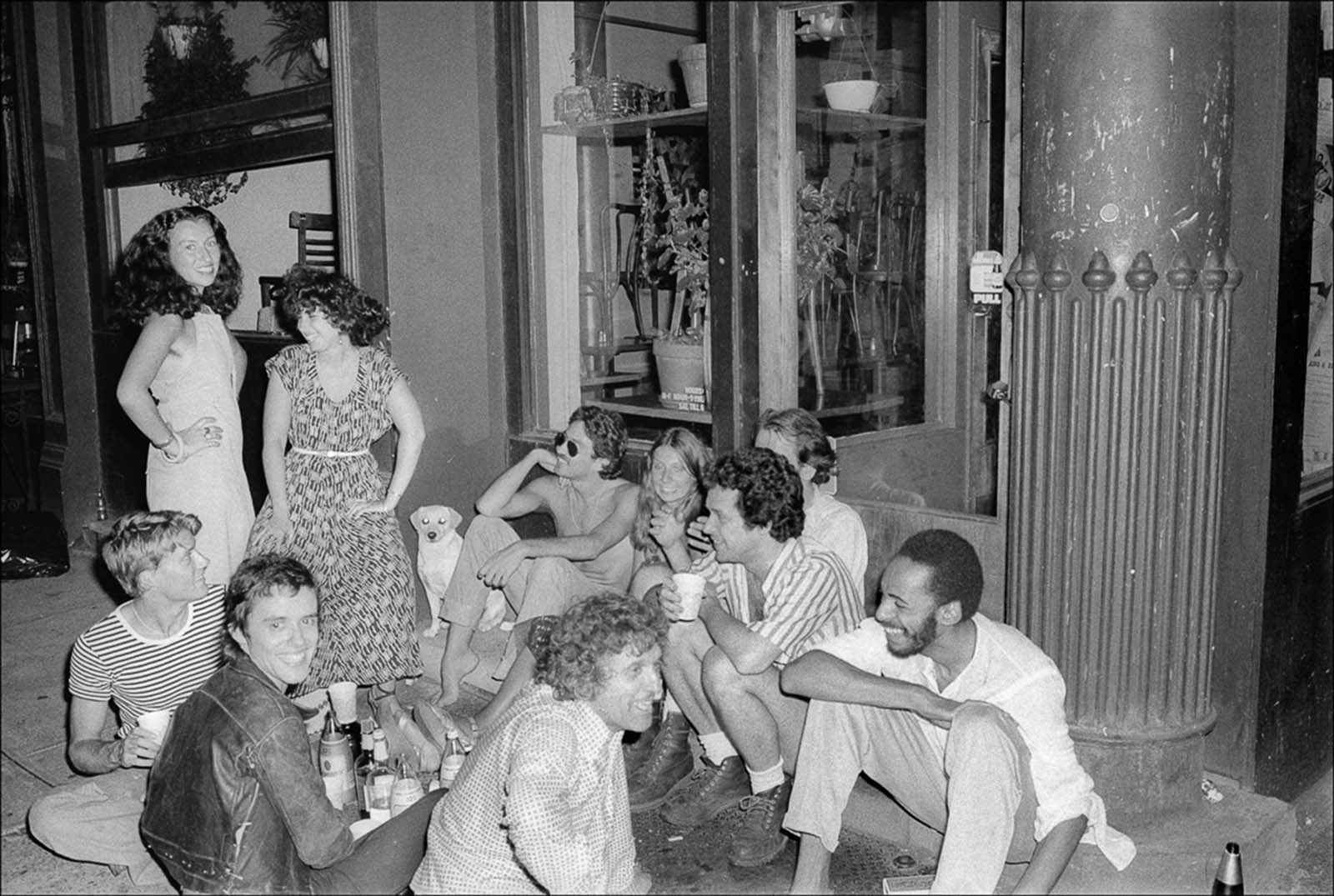
A group of people hold a party on a SoHo sidewalk.
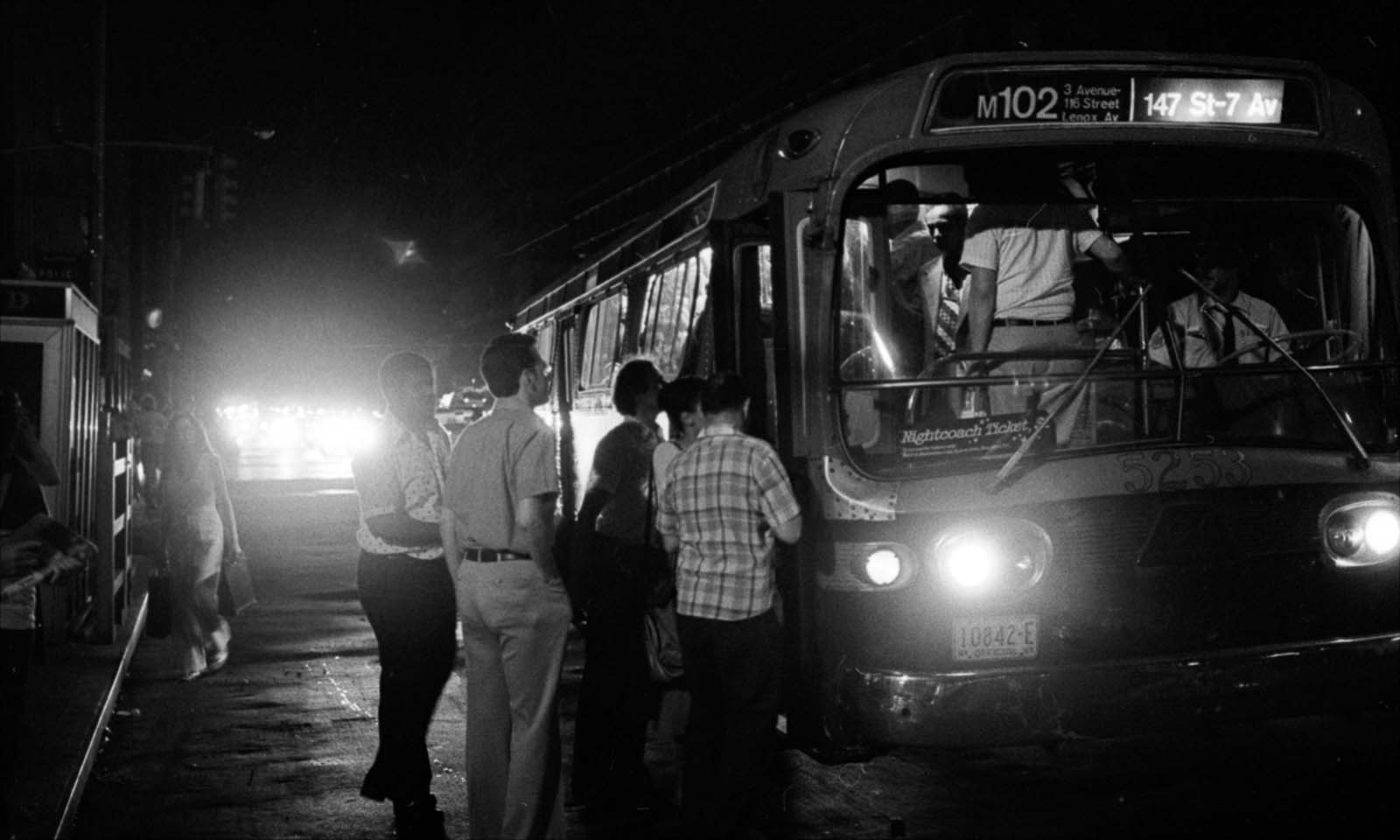
With subway service cut off, people crowd aboard a bus on Seventh Avenue.
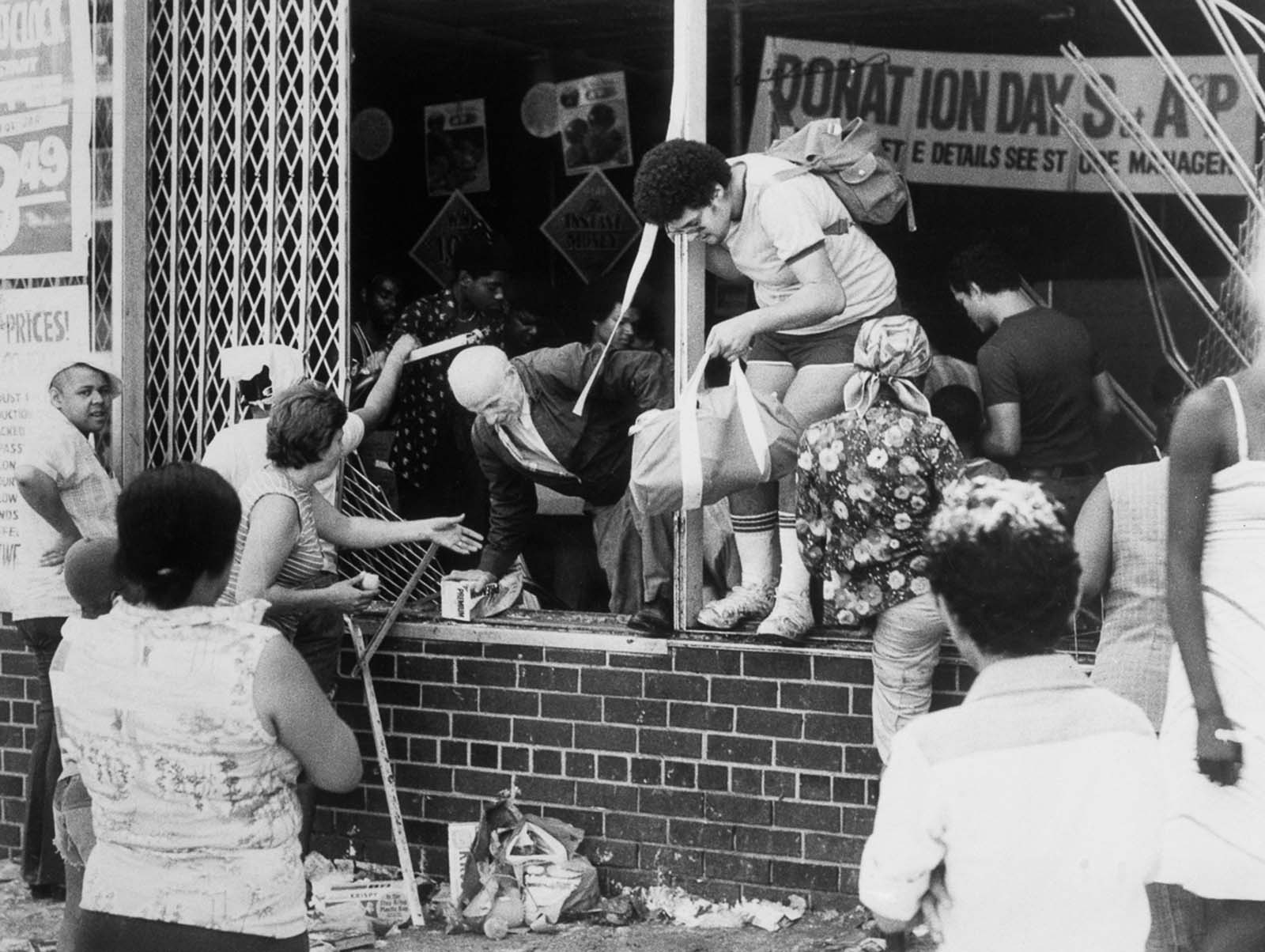
People carry looted goods out of an A&P supermarket at Ogden Avenue and 166th Street in the Bronx.
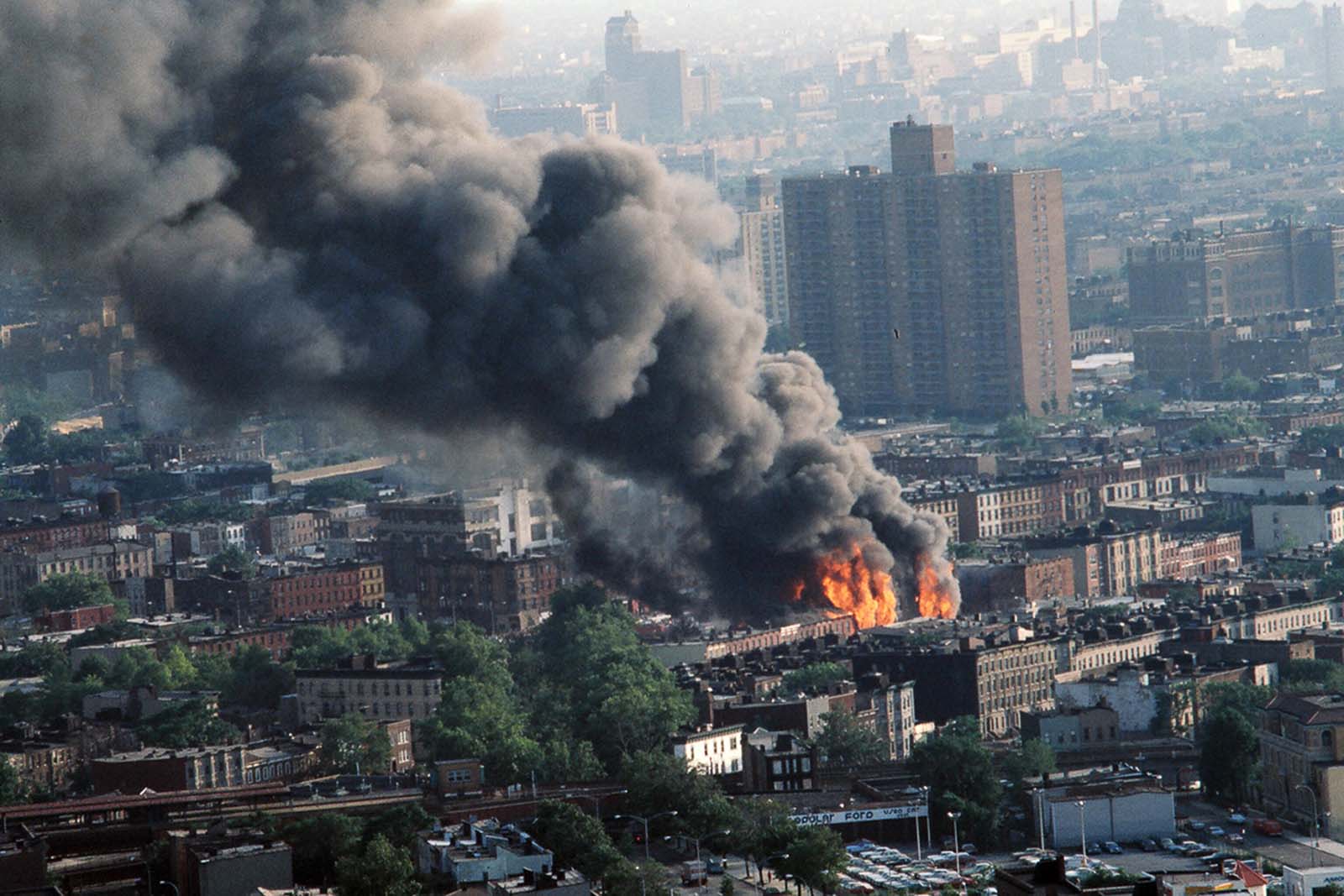
A building in Brooklyn burns as a result of arson.
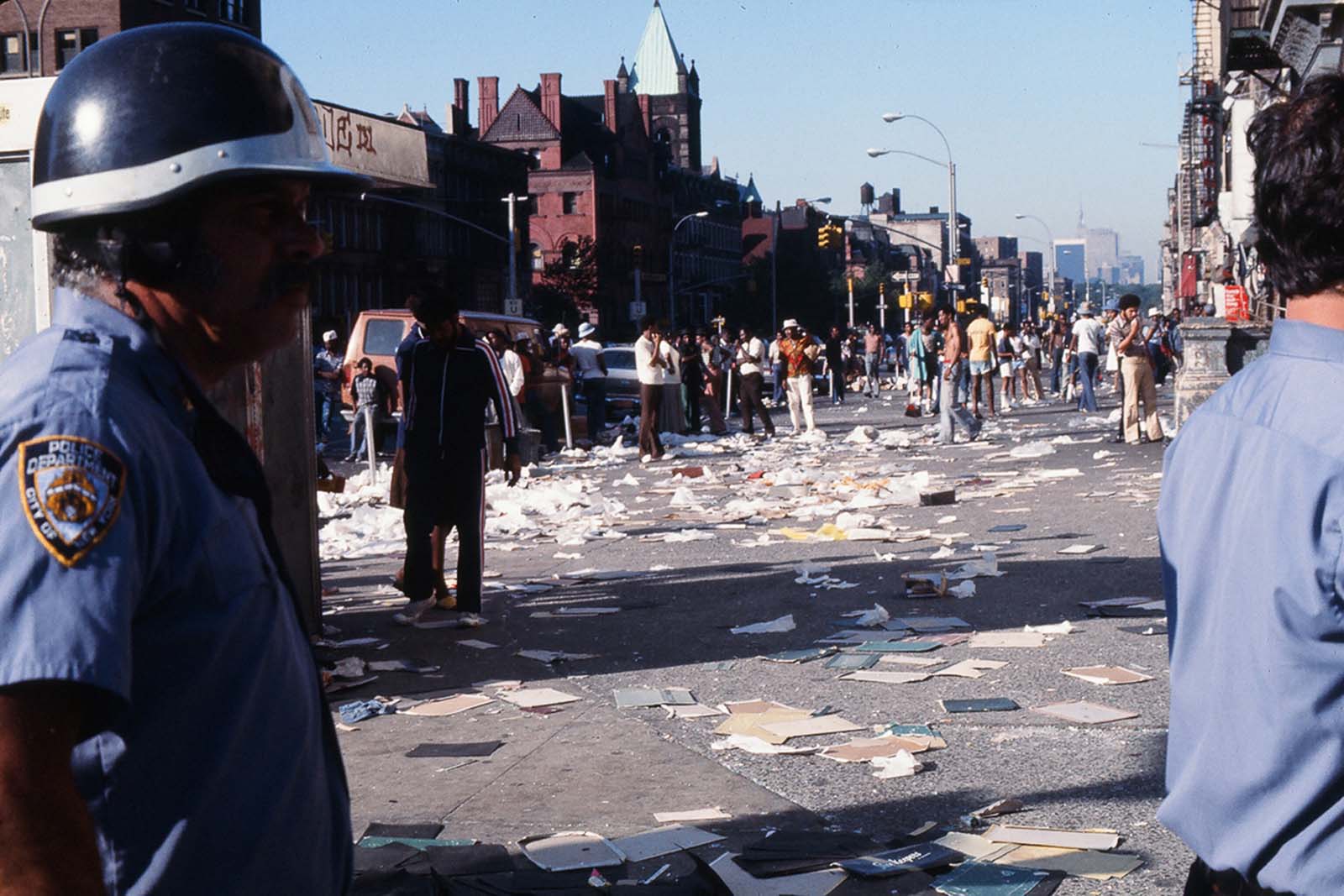
Police officers and passersby stand in front of a looted store in Brooklyn.

Store owners guard their damaged storefront against further looting.
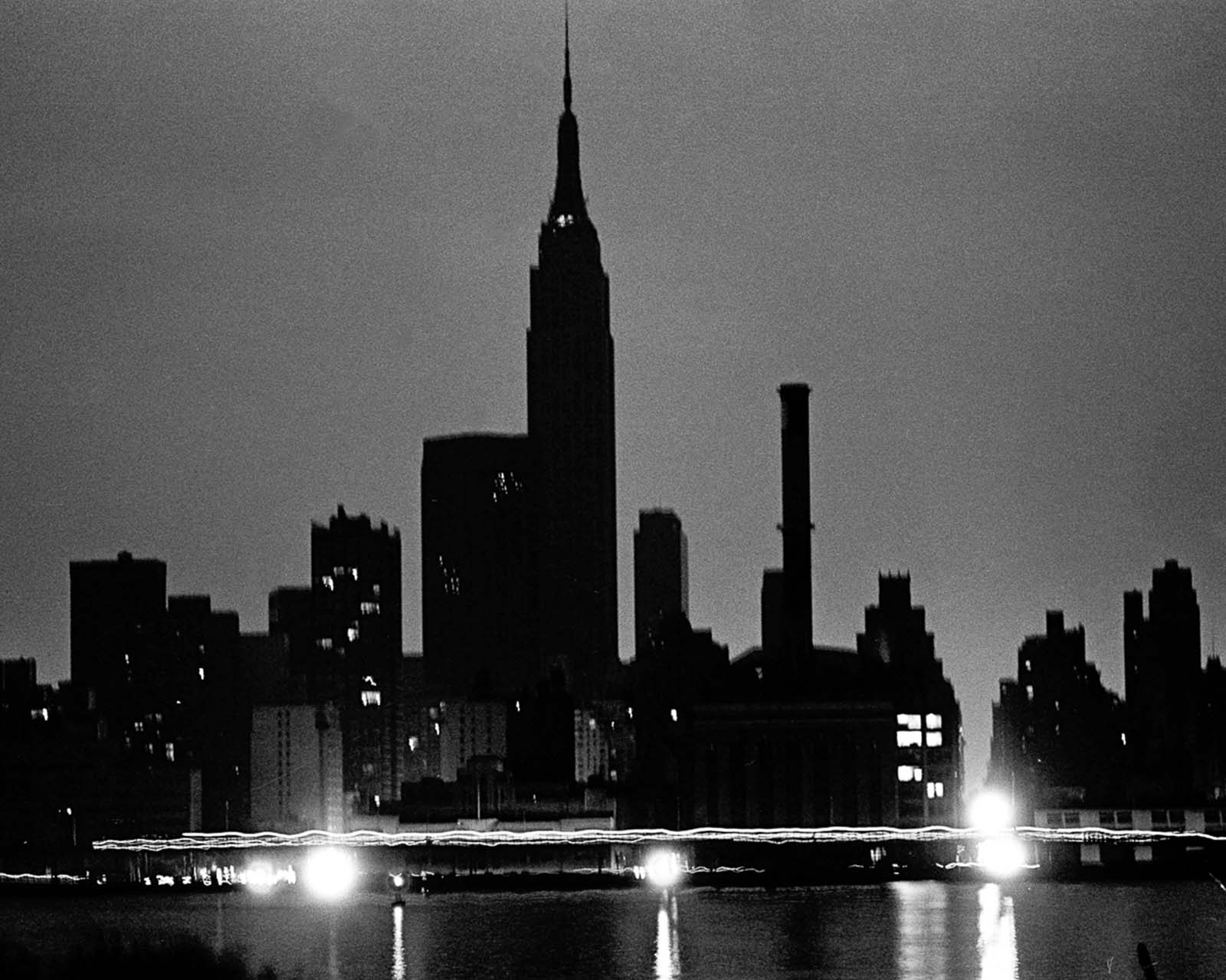
A blackout Manhattan.
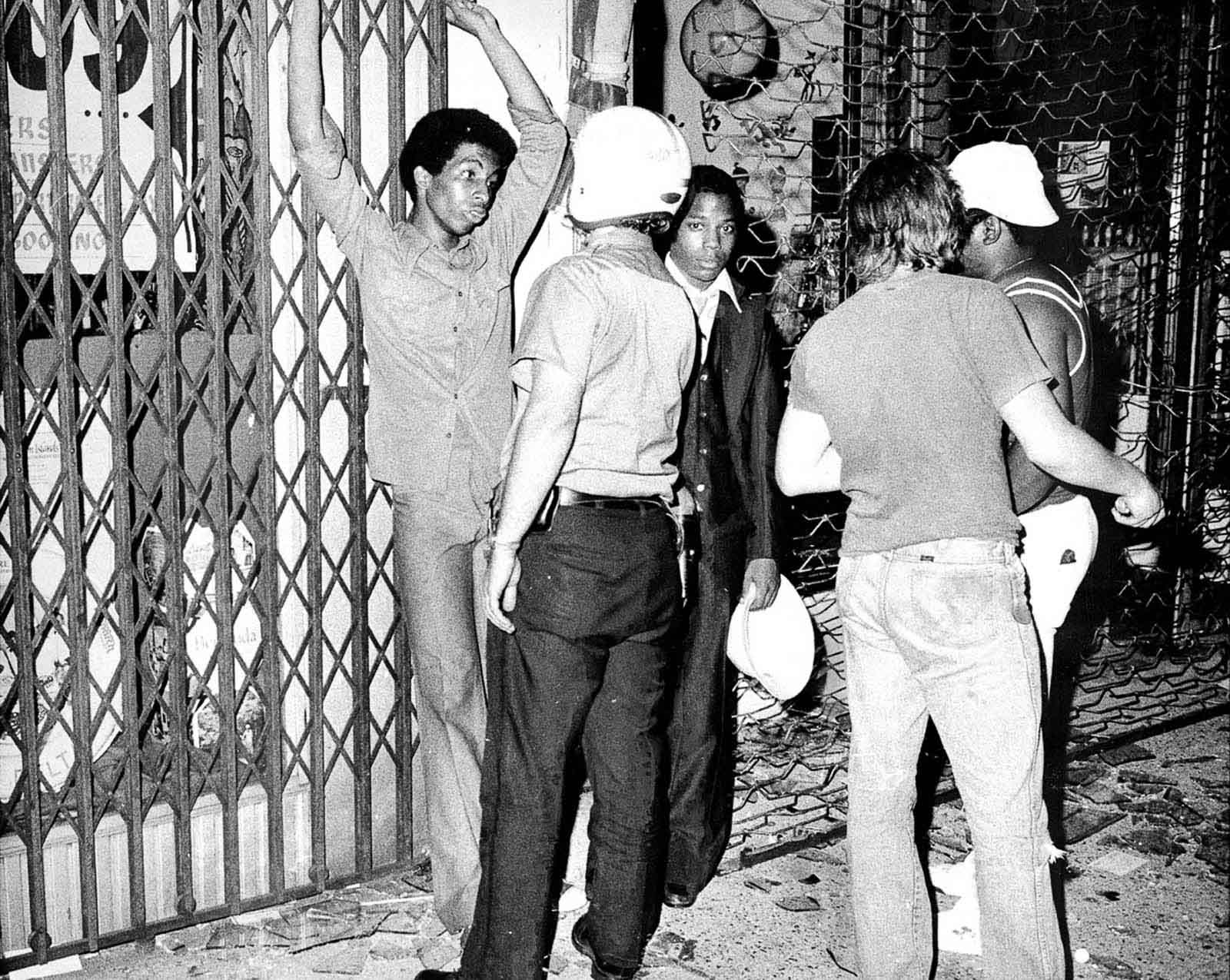
Police detain suspected looters in the Bronx.
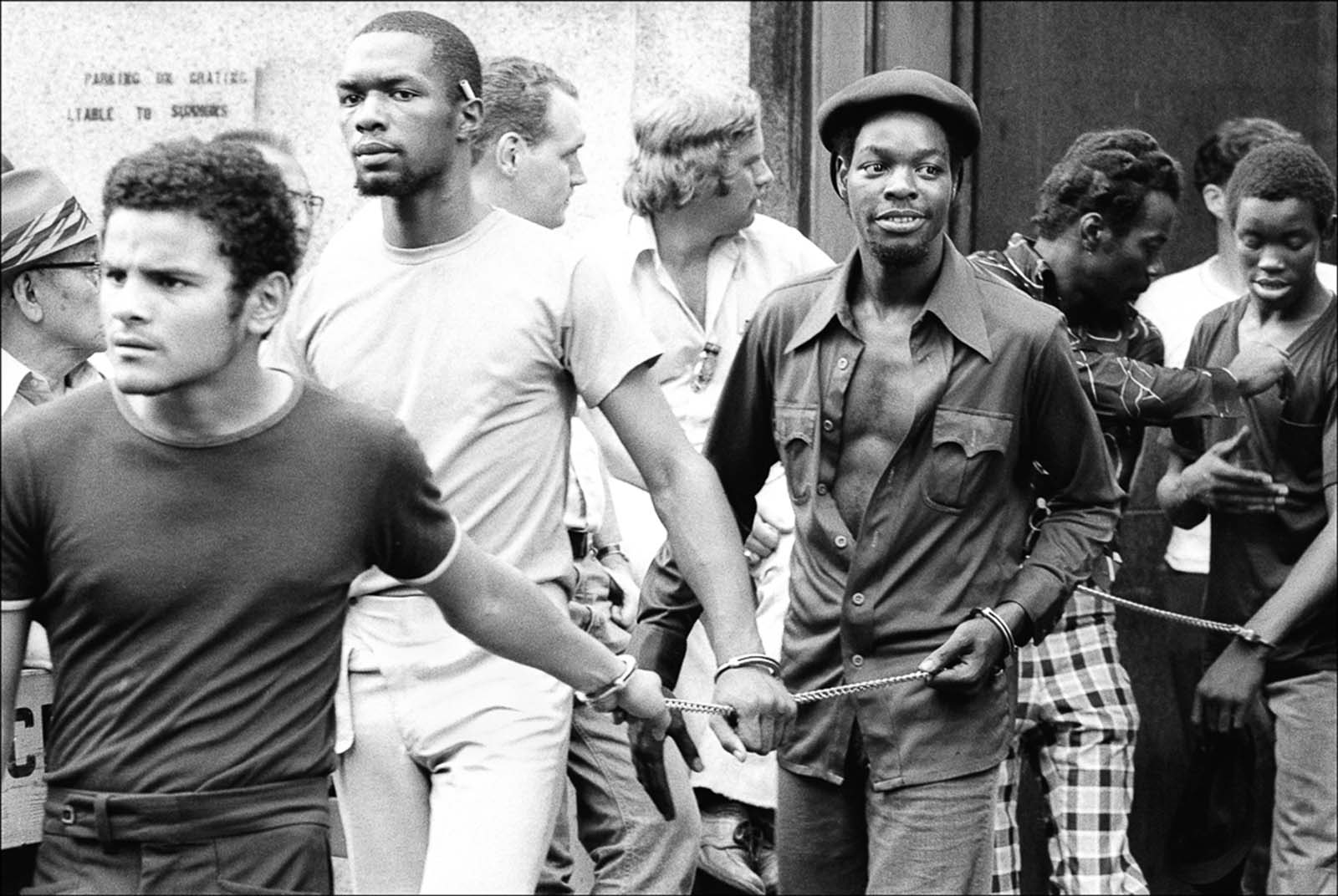
Suspected looters are chained together after being arrested.
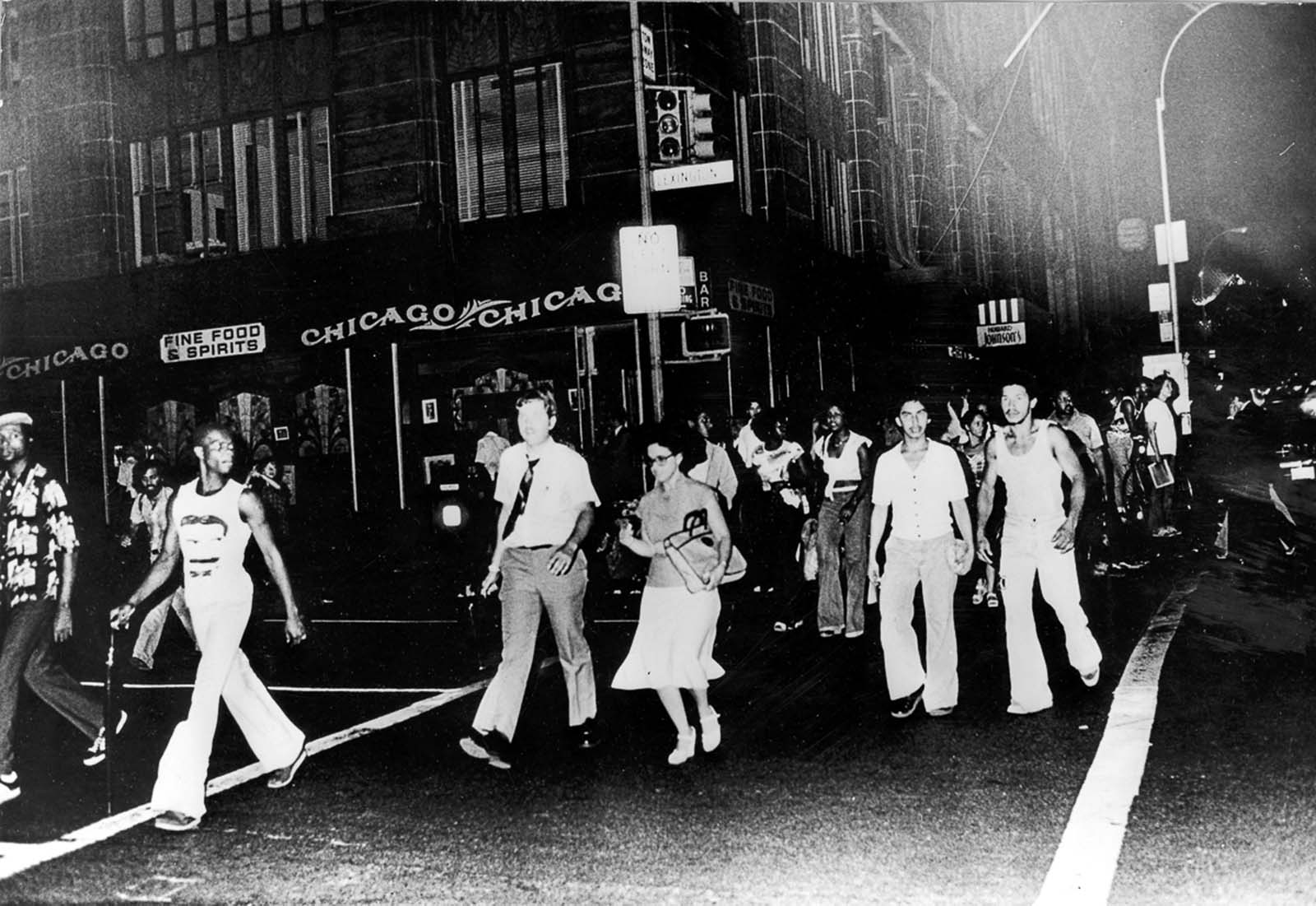
People cross Lexington Avenue in darkness.
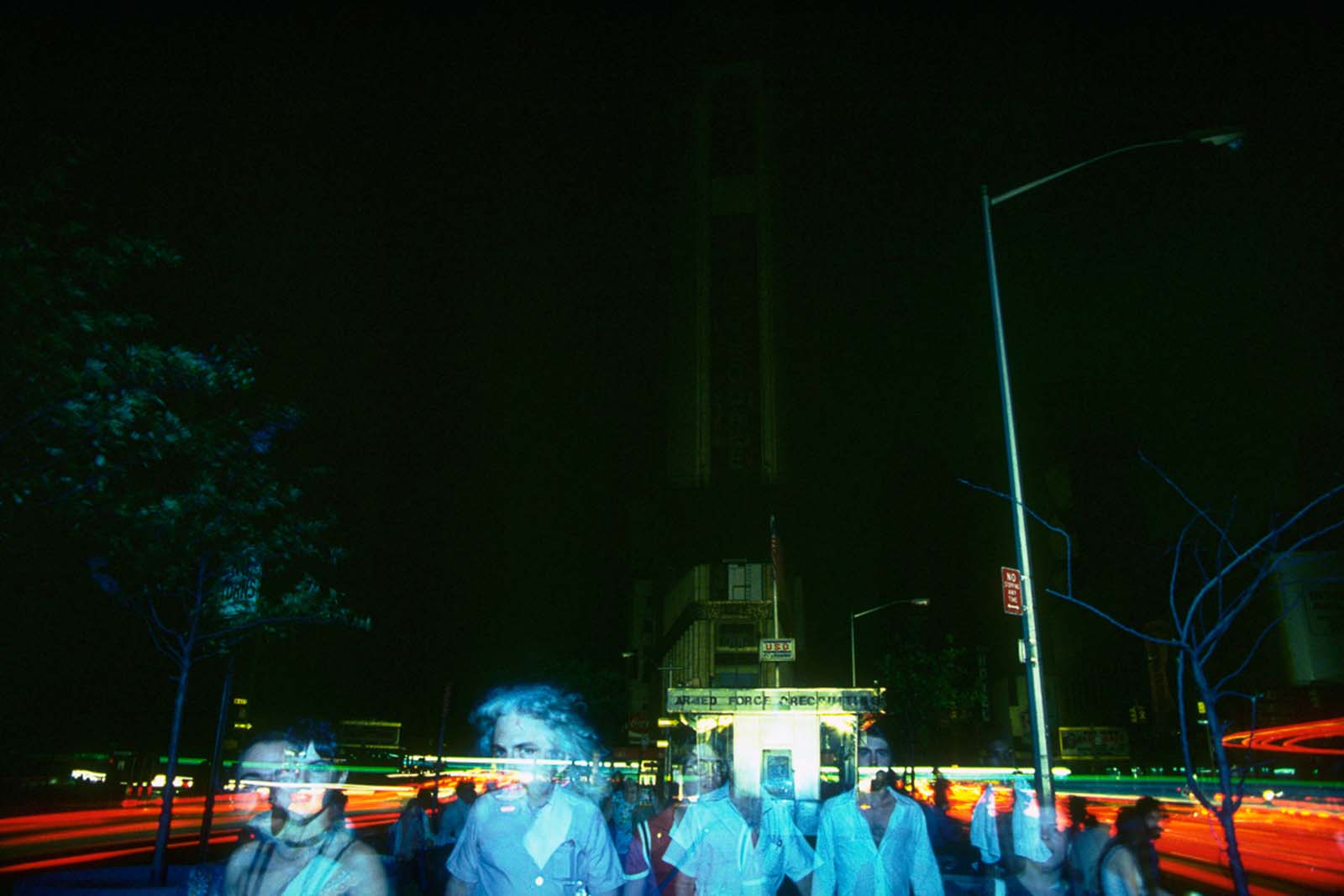
People make their way through a dramatically darkened Times Square.
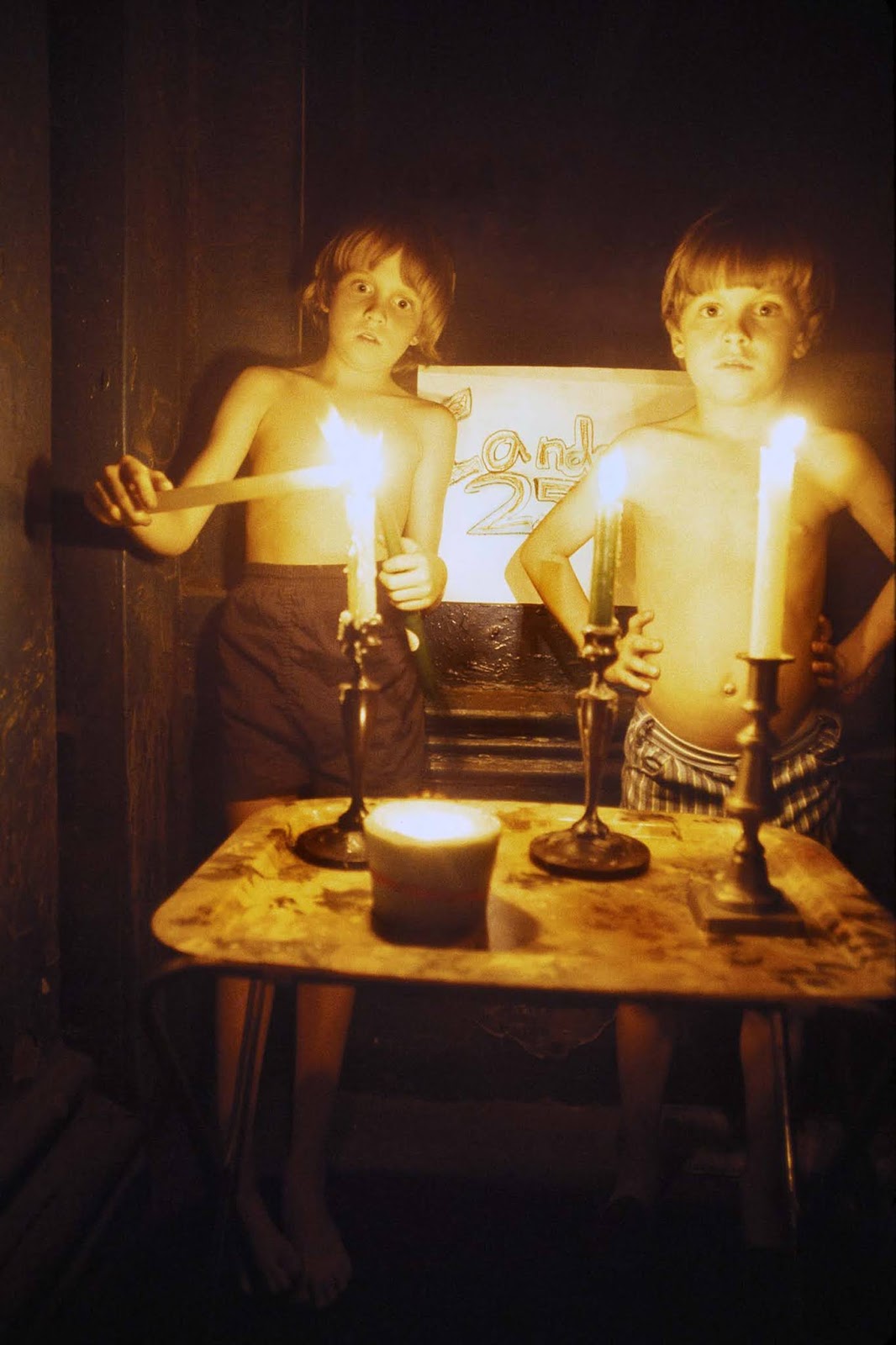
Boys sell candles on a Tribeca sidewalk.
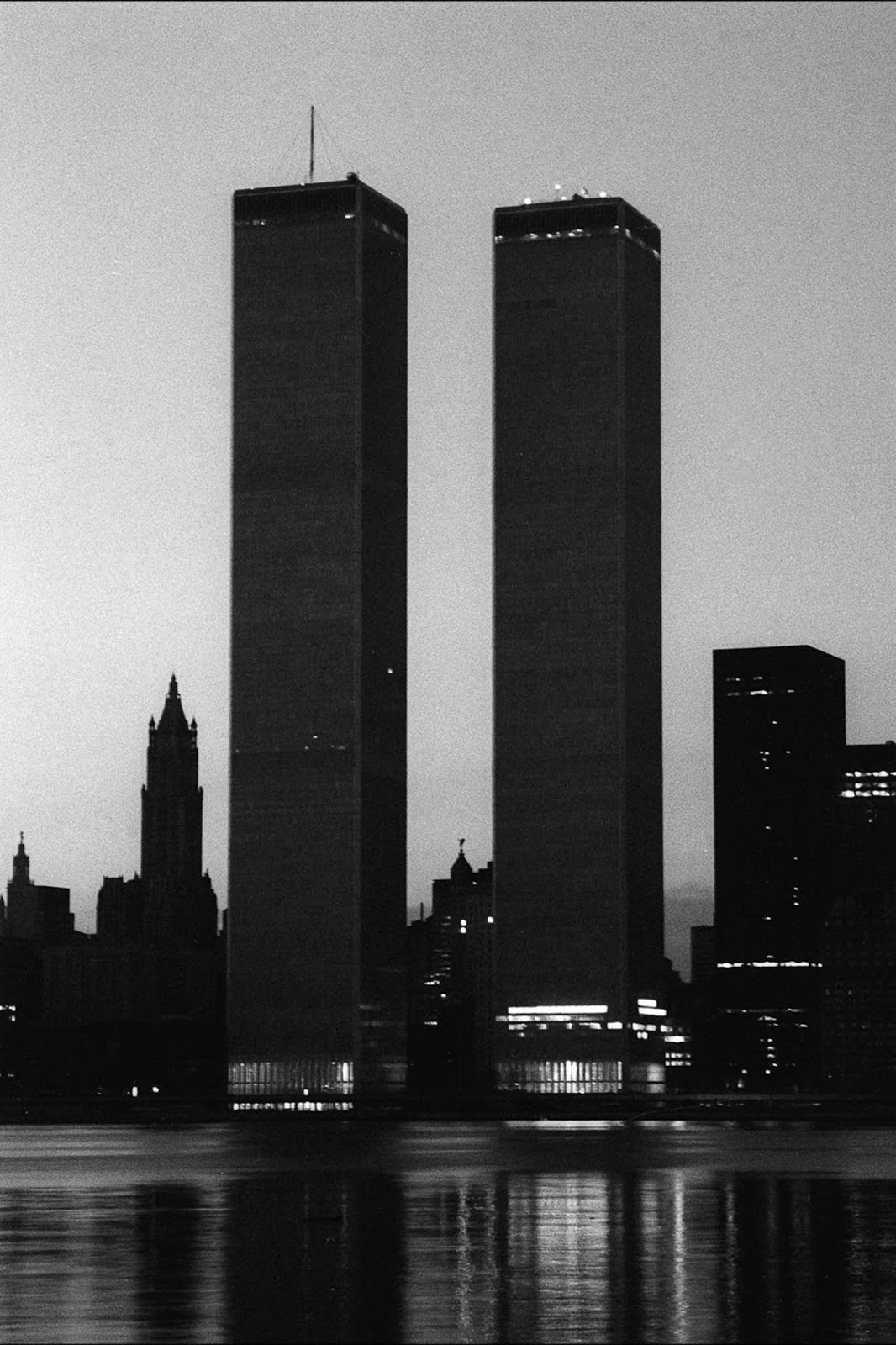
The World Trade Center.
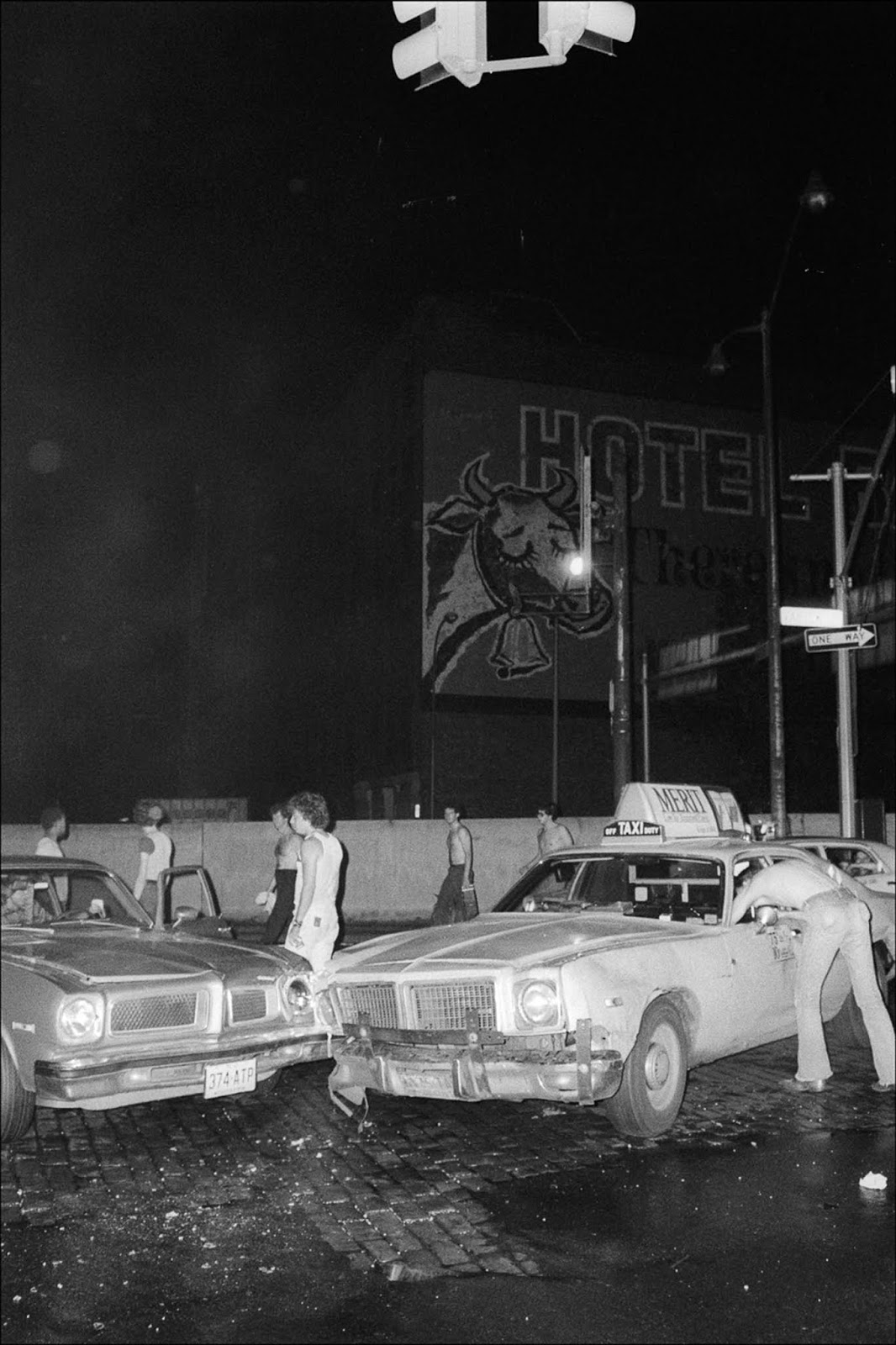
People gather around the site of a car crash in the dark.
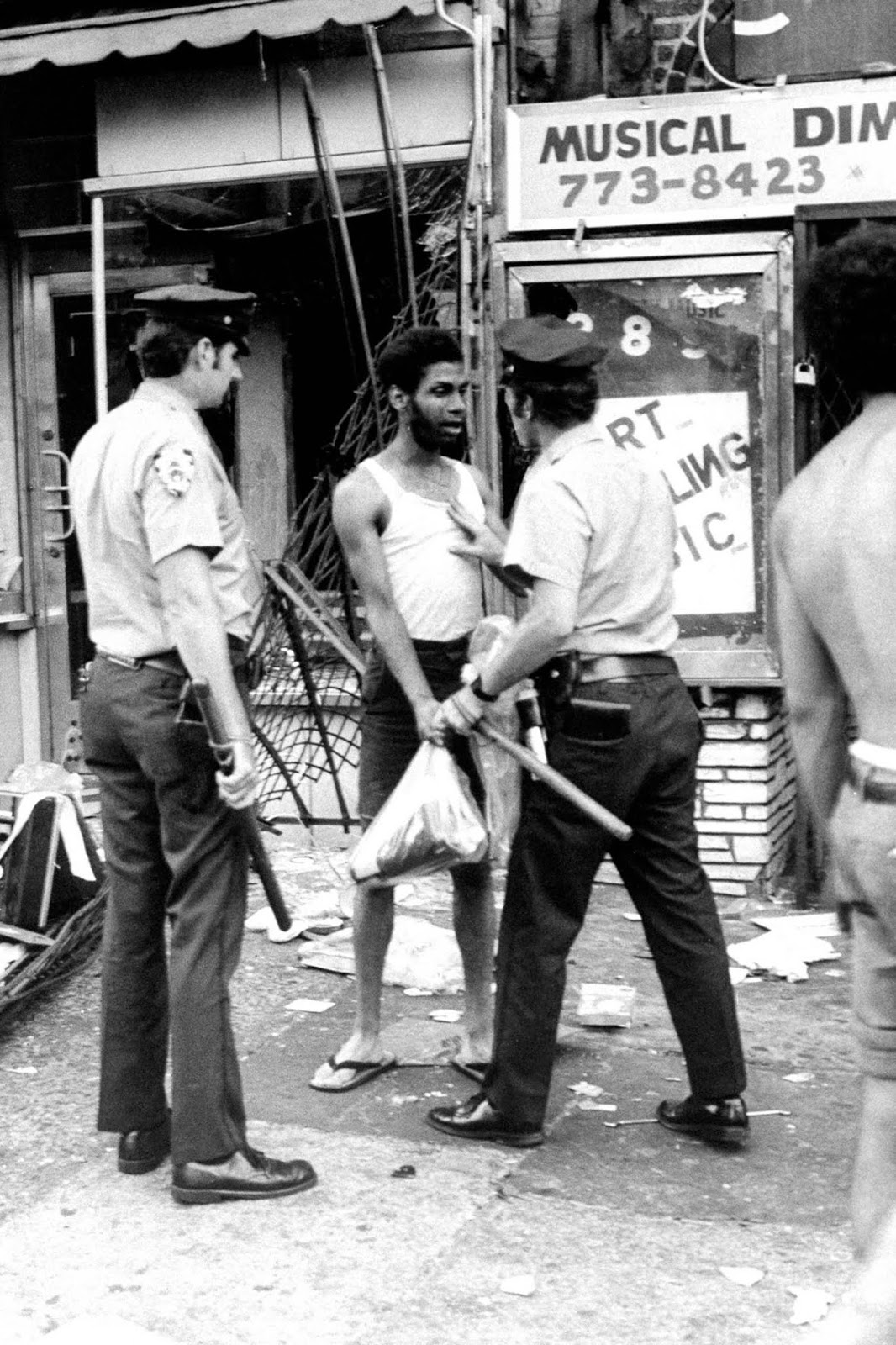
A police officer arrests a suspected looter.
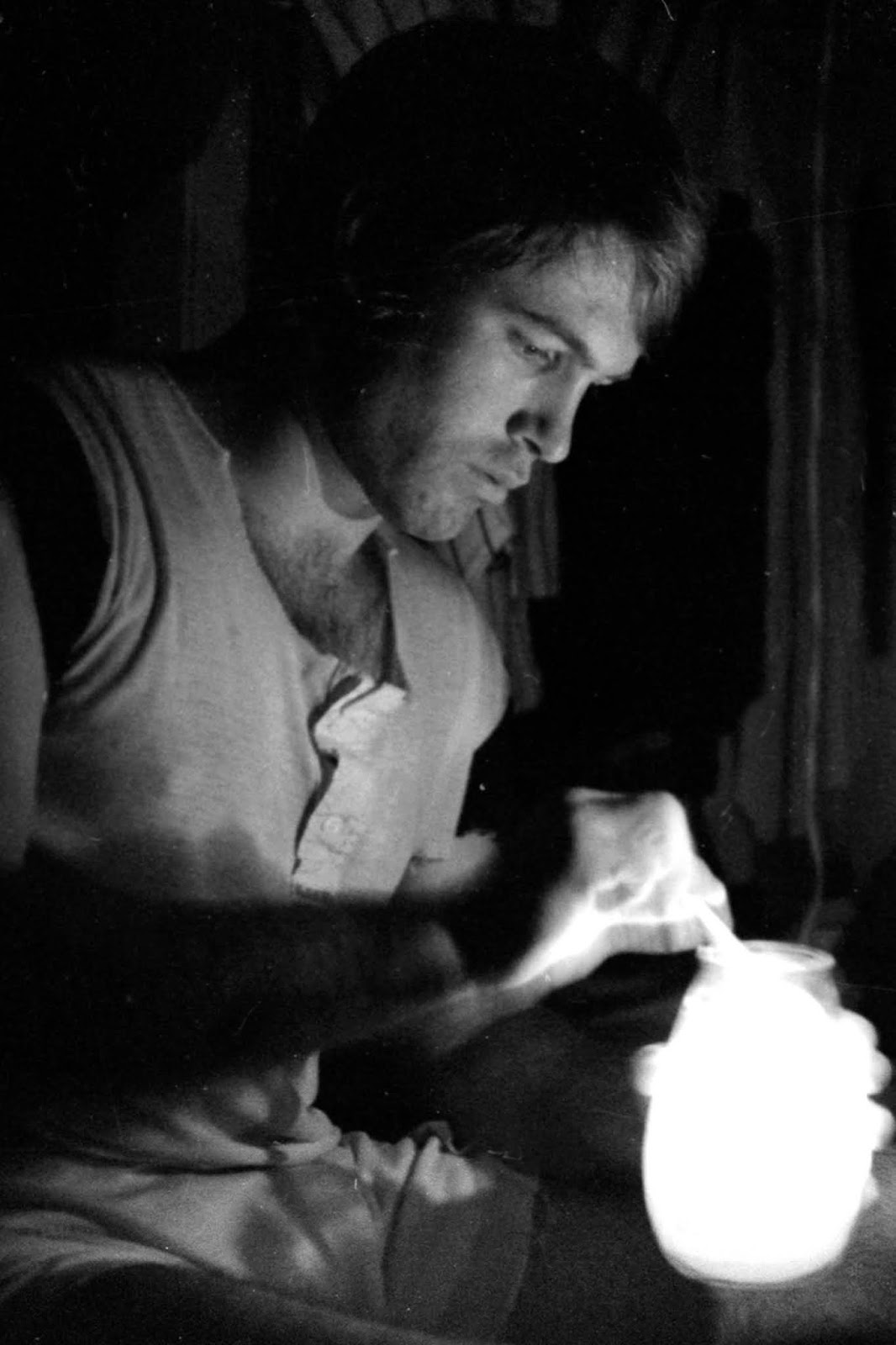
John Stearns lights a candle at Shea Stadium.
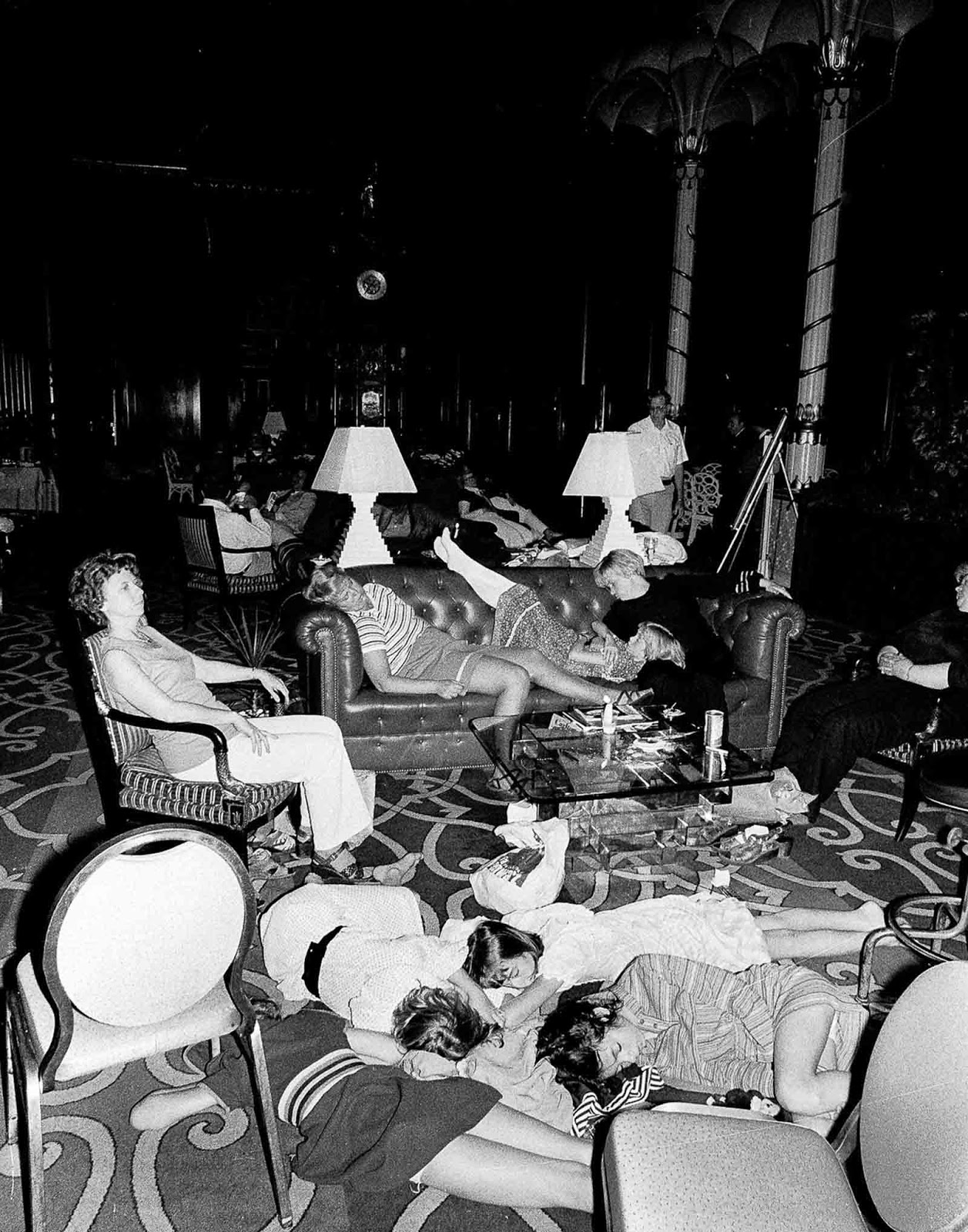
Stranded people sleep in the lobby at the Waldorf-Astoria hotel.

“The Lights Go Back On”.

New York City during the blackout of July 13, 1977.

Firemen fight a blaze above a row of looted stores in New York’s Brooklyn borough, July 14, 1977, the day after the power failure. The stores were looted during blackout.

Firemen battle flames at a store in the Bronx borough of New York, one of many fires that broke out during the massive power failure that crippled the city for more than 24 hours, seen July 14, 1977. Firemen answered 1,500 alarms, 400 of which were actual fires. Forty of the fires were termed serious.
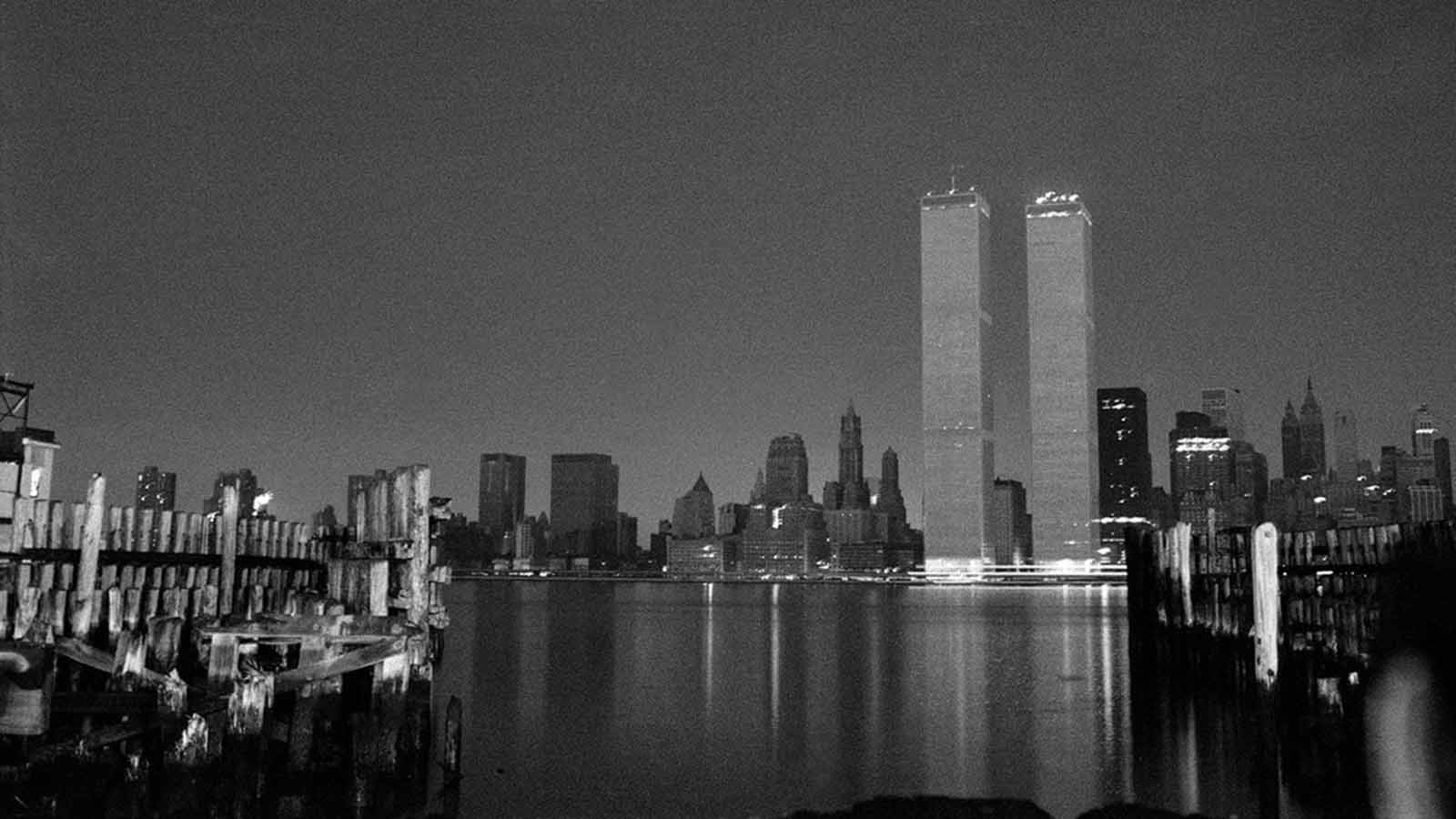
Seen from across the river in New Jersey, only the base of the World Trade Center’s twin towers flickered with light.
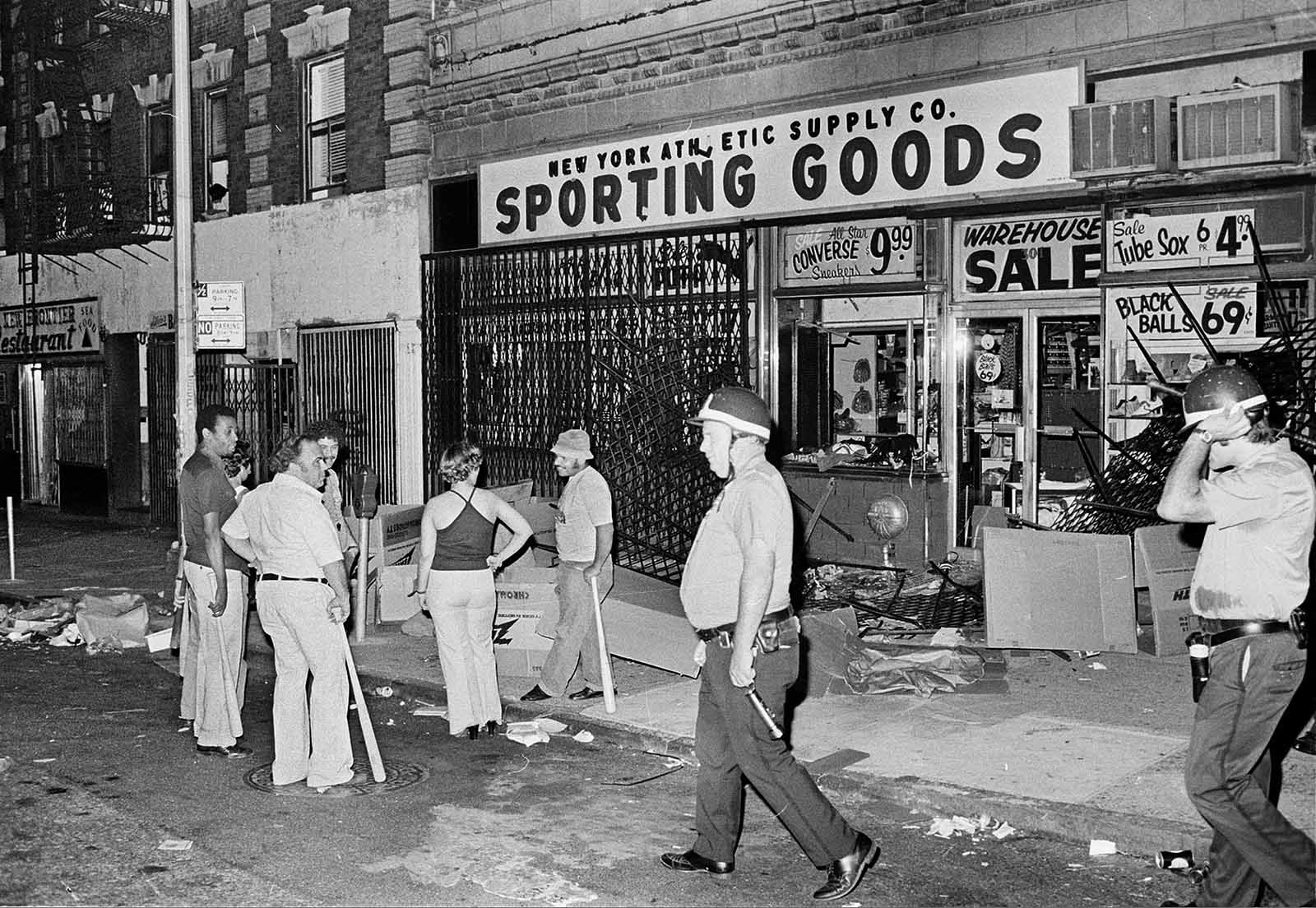
Owners and employees of a sporting goods store stand guard outside with baseball bats after the store on New York City’s Upper West Side was looted during massive power failure, Wednesday night, July 13, 1977. Police patrolling the area walk by the store.
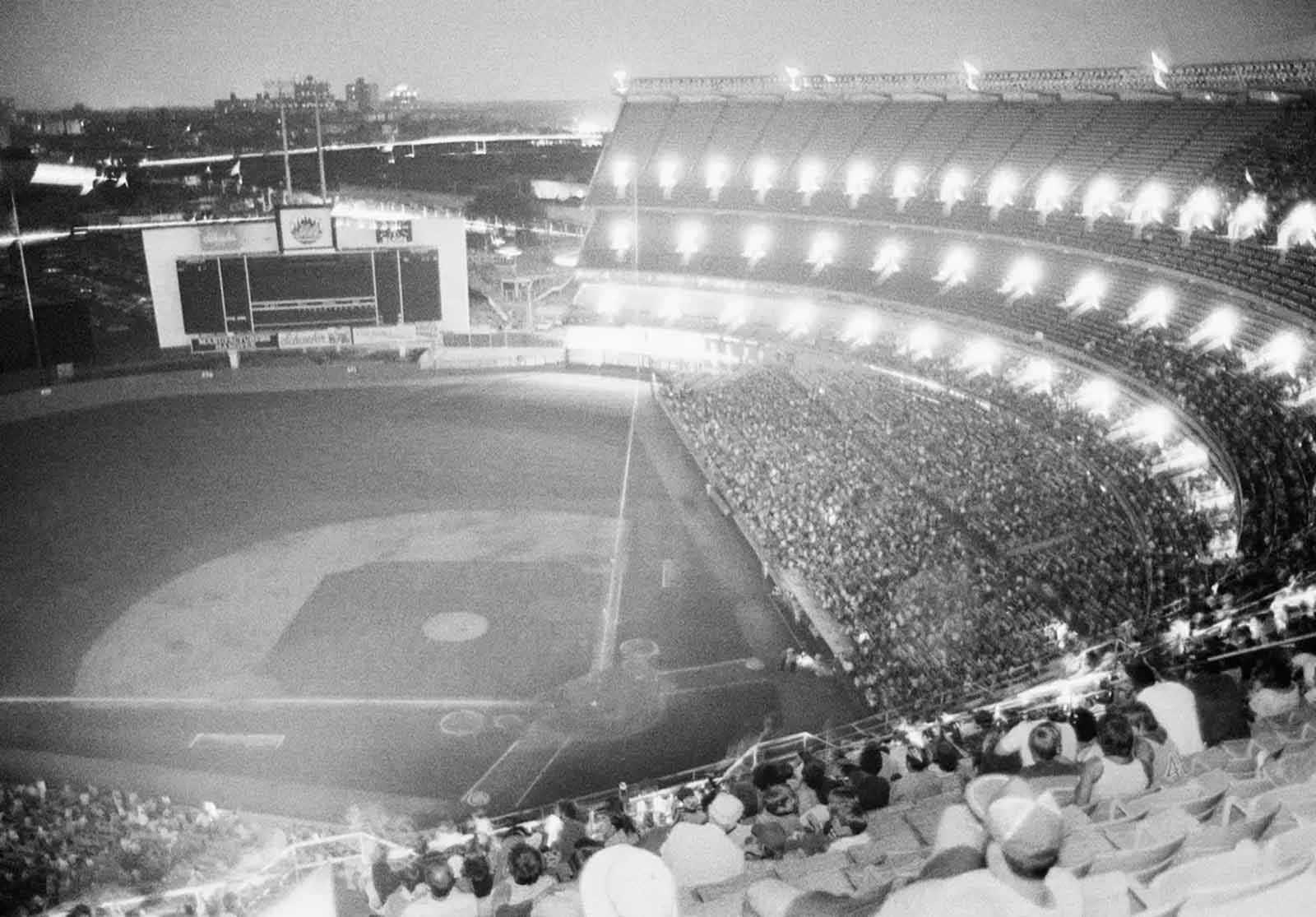
New York’s Shea Stadium lies in darkness during the bottom of the sixth inning after the lights went out during the game with the Chicago Cubs, July 13, 1977.
(Photo credit: NY Daily News / Getty Images / Corbis / AP Photo / Museum of New York City).
